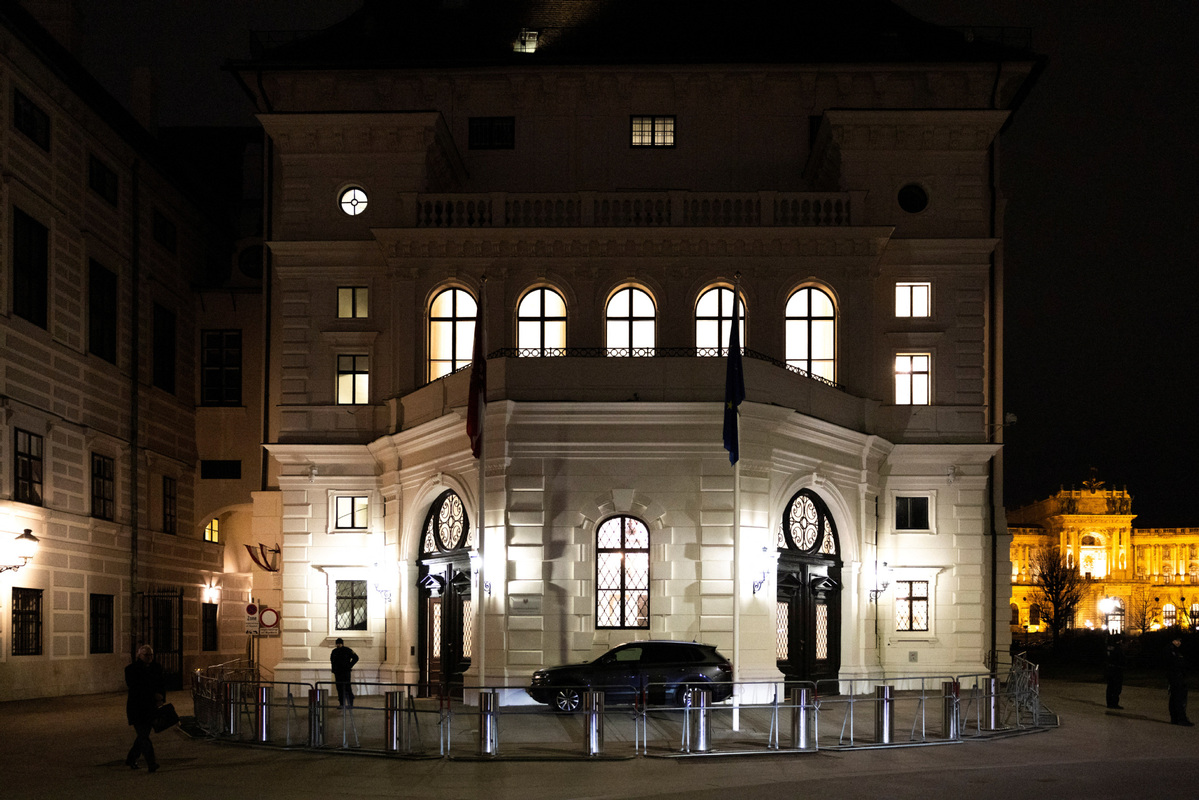Austrian far right to be snubbed in governing coalition
By Julian Shea in London | China Daily | Updated: 2025-02-28 09:23

The three biggest centrist parties in Austria's parliament have indicated that they are close to forming a coalition government without the involvement of the far-right Freedom Party, or FPO, despite it having won the largest vote share in last September's parliamentary election.
The deal, between the conservative People's Party, or OVP, the Social Democrats, or SPO, and the liberal NEOS would bring to an end the longest wait for a government in Austria since the end of World War II, and result in the country's first three-party government since 1949.
"I am very confident that in the common ground that we have found, we will manage to finalize a coalition government agreement," said OVP leader Christian Stocker, speaking alongside the other party leaders.
"We're on the home stretch, we're not over the line yet, the willingness is there," added NEOS leader Beate Meinl-Reisinger.
In September's election, the FPO won 28.9 percent of the votes, as opposed to the OVP's 26.3 percent.
FPO leader Herbert Kickl said the result had opened the door to a new era, but his party's failure to strike a coalition deal caused it earlier this month to say that another election was needed to resolve the deadlock.
Now it seems Stocker, who only became OVP leader when former party head and chancellor Karl Nehammer stepped down in early January, is in line to be the country's next chancellor, with the SPO's Andreas Babler as vice-chancellor.
The deal still needs to be approved by grassroots members of NEOS, who will vote on the matter on Sunday, and as a result, they could find themselves part of the national government for the first time.
Between them, the OVP and SPO have the slimmest of majorities, with 92 out of 183 seats in the parliament, as opposed to the FPO's 57, so the addition of 18 NEOS-held seats to their bloc of support would be vital.
Kickl, who is a prominent admirer of Hungary's Prime Minister Viktor Orban and has opposed imposing sanctions on Russia, called the proposed government a "coalition of losers" and repeated his demand for fresh elections.
However, leading OVP figure Karl Mahrer specifically blamed him for his party's alienation by the other political groupings.
"I thought Herbert Kickl had changed," he told Austrian television. "The last weeks, days and hours have proven that he is still a safety risk."
The freezing out of the FPO in Austria, despite its success at the ballot box, comes just days after elections in Germany saw the far-right Alternative for Germany party score the second-highest vote share, only to be on course to suffer the same fate in being excluded from a governing coalition by mainstream parties.
























